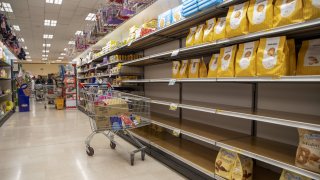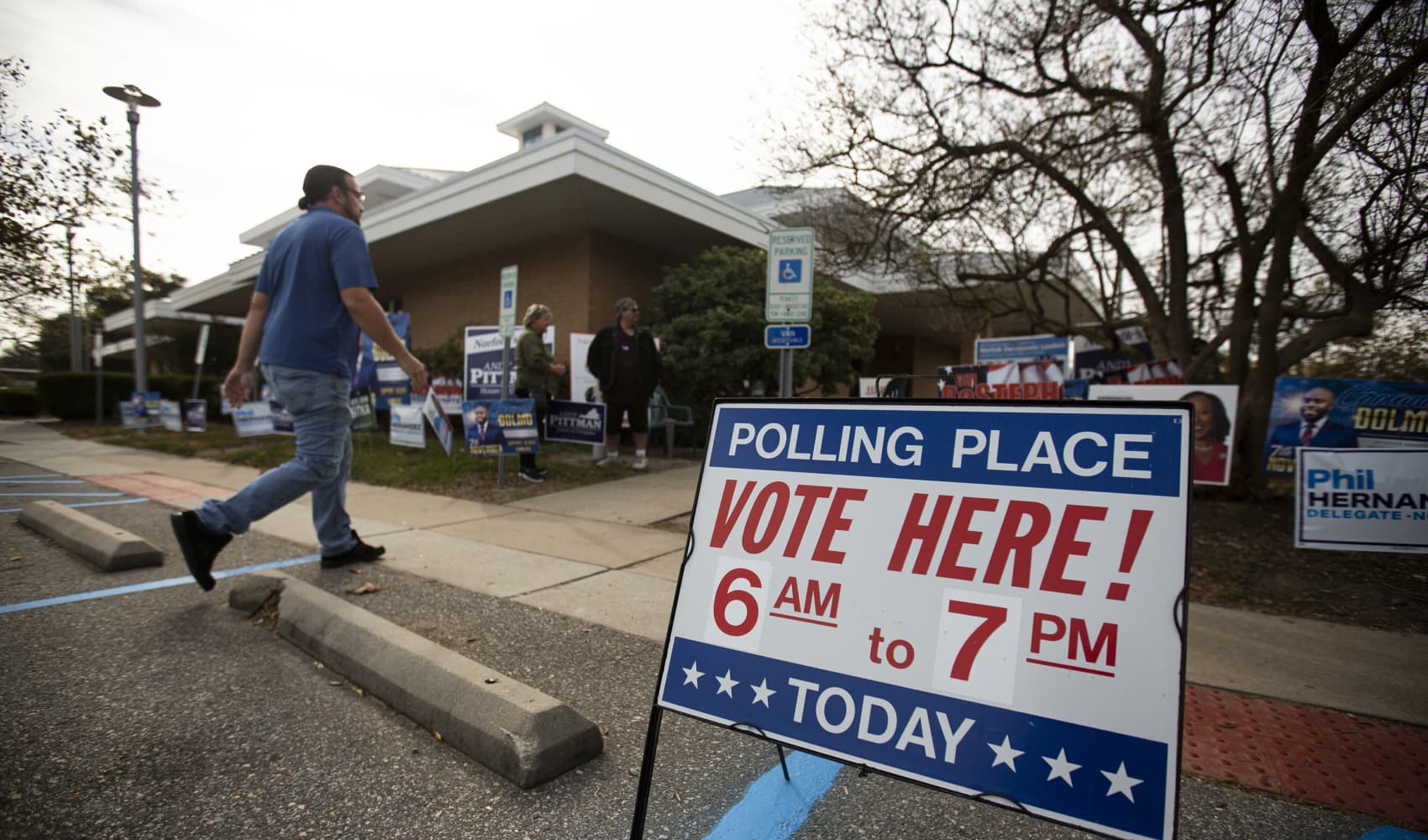
Many people around the world have been racing to stores to stockpile goods like toilet paper and pasta as coronavirus (aka COVID-19) cases continue to rise. (As of Friday, the global death toll for coronavirus neared 5,000, according to data compiled by Johns Hopkins University.)
Whether you've been personally touched by coronavirus or not, it is well-advised to at least be prepared with the essentials.
"Store a two-week supply of water and food," the U.S. Department of Homeland Security's emergencies and disaster prep site, ready.gov, suggests.
The site also advises periodic checks of any prescription drugs to ensure a continuous supply and a refill of any nonprescription drugs like pain relievers, cough, and cold medicines. Additionally, the American Red Cross recommends keeping an at-home first aid kit to treat common injuries, including cuts, scrapes, swelling, sprains, strains and more.
Get top local stories in Philly delivered to you every morning. Sign up for NBC Philadelphia's News Headlines newsletter.
None of that includes a 30-pack of Charmin.
"Right now, people are doing incredibly silly things," Regina Phelps, a pandemic planner and crisis management expert, tells CNBC Make It.
That's understandable — in her two decades as a pandemic planner, Phelps has learned that when people or companies don't develop a plan about what they actually need in advance, the "natural kind of response" is to buy things they don't need and will end up never using.
Money Report
But it can get expensive, and it's unnecessary.
Phelps, the founder of Emergency Management & Safety Solutions in San Francisco, where she advises companies like Whole Foods, Nike and Starbucks on crisis management plans, including possible pandemics, says these are some of the things she sees people waste money on.
Foods you don't normally eat
People without a plan or a grocery list typically throw random items in the cart that they normally don't eat to feel more secure, Phelps says.
"I live in earthquake country right now and I'll look at people's earthquake supplies and say, 'You really like canned beef stew?'"
And a majority of the time, people will say, "no," she says.
"Buy things that you would really eat. Not stuff that just because it was there and you think, 'oh, gosh, maybe this would be good.' You just need to have the basics."
Masks
"Everybody thinks, 'Oh, my gosh. I need a mask,'" Phelps says.
But the reality is that if you're not sick, or caring for someone who is sick, or flying, you don't need to wear one.
"Anything else, it's not necessary," she says.
Fancy cleaning supplies
Phelps says most people are going crazy with buying all sorts of cleaning supplies, wipes and special hand sanitizers to combat the spread of the virus.
"You can't find things like rubbing alcohol or Clorox wipes because people are in a panic," she says.
But she says all you really need is some bleach and hand soap to clean and disinfect your home.
"Bleach is super cheap. While it will stain some things and you can't use it on everything, you can use it in your bathroom and on your doorknobs and stuff like that. So you don't really need fancy cleaning stuff."
Air filters
While some have recommended using a humidifier or HEPA filter to improve air quality and reduce the risk of coronavirus transmission, in Phelps' opinion, the pricey devices aren't necessary.
"Most air filters do not have that kind of micron specificity to really kill viruses and it's not going to really help," she says.
Check out: The best credit cards of 2021 could earn you over $1,000 in 5 years
Don't miss:
Should you skip the gym or a workout class because of the coronavirus outbreak?
CDC says Americans need to prepare for coronavirus now — here's what you can do






